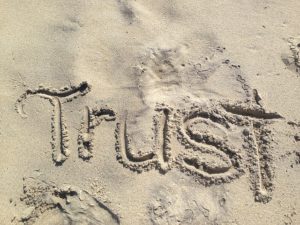 The month of Nissan in the Hebrew calendar is centered on Passover (Pesach). Passover is the spiritual New Year of Judaism. It encapsulates the major leitmotif of Judaism, the movement from bondage to freedom.
The month of Nissan in the Hebrew calendar is centered on Passover (Pesach). Passover is the spiritual New Year of Judaism. It encapsulates the major leitmotif of Judaism, the movement from bondage to freedom.
In the plain meaning of the story of the Exodus from Egypt, the Hebrew name for Egypt is Mitzraim, or, ‘the narrows’. Mitzraim’s plain meaning refers to the Egyptian countryside which is dominated by the Nile River with fertile soil sandwiching the river, a narrow strip running through the country which is the only habitable area of Egypt.
The psychological meaning refers to the confinement of our life. The Jews were physically held captive. Psychologically we are trapped in our body, attached to material possessions, stunted by habits, confined by static teachings and formalized ways of acting; our lives are narrow and confined. We must move on to continue to individuate or become the person of our potential, just as the Jews had to flee in order to be free.
The thought of change generates a lack of confidence; into that void comes both fear and doubt. We think a mundane existence is superior to the unknown. We have been conditioned to believe that confidence is the prerequisite for action. But the meditation teacher Sylvia Boorstein reminds us, “Confidence is not something we have, it’s something we practice.”
I can’t tell you the number of times clients have put off inevitable decisions because “I’ll wait until after the holidays.” “The kids are too busy.” “There are too many things happening.” “My mother is ill.” Or, the myriad excuses I have told myself in order to avoid action. The fact is, most major life decisions are fraught with uncertainty. To act we require trust.
The Hebrew word emunah, means trust. But trust unfolds in three stages.
1) Emunat ha-moah: Trusting Mind. This is the realm of thinking or reason. It may be information we have gathered or data from a trusted person, an insight in psychotherapy or a revelation of God’s ratzon or will in religious practice.
2) Emunat ha-lev: A Trusting Heart. While thoughts and ideas are the guides, feelings are the engine. Our feelings animate our thoughts. They take our thoughts and imbue them with passions. Our thoughts become transformed into bodily energy, which manifests as desire.
3) Emunat ha-evarim: Embodiment. This is the action component. Trusting with your limbs. Whether it’s physically leaving, signing a contract or connecting with another, we do so through specific physical action.
Emunah to be effective unfolds in these three dimensions.
Like the Exodus, our individual journey begins with ‘a stirring of the soul’. Psychologically this manifests as ‘intuition’, or an instinctive feeling as compared to conscious reasoning. As such, there is always uncertainty, as we cannot fill in the cognitive elements, which make for absolute knowledge and prediction. Furthermore, we can never be completely prepared, because there is inherent uncertainty in knowing the future.
The next shift begins with feelings or emotions. Our feelings energize and excite. Like atoms on a ring, energy builds and brings us to the point of action. The action, however, must be guided by faith or trust, which takes the place of knowledge. Ironically these states only occur after the action is taken.
The Jews are allowed to leave Egypt. They are not prepared, but they leave anyway. They are motivated by their trust and faith in Moses who channels God. Pharaoh then changes his mind and chases the Jews. The Jews approach the Red Sea, and without hesitation leap into the water. It is only then that they break into song, and God opens the waters so the Jews can leave.
The expression in song is the highest and ultimate expression of emunach, the unity of thought, feeling and action. But the Jews only knew true faith and trust after they leaped, after they risked.
In our personal lives, we must also leap. The worst mistakes I have made in my life have been staying too long. At the same time, I have recognized that ‘leaping’ even without complete preparation is not a catastrophe. It does not always work, but it is still superior to staying put. Once the stirring of the soul is heard we must move forward, in an expression of our freedom. And the expression of freedom is more important than consequences, which are always transient, and rarely what we imagine.










